Related Research Articles
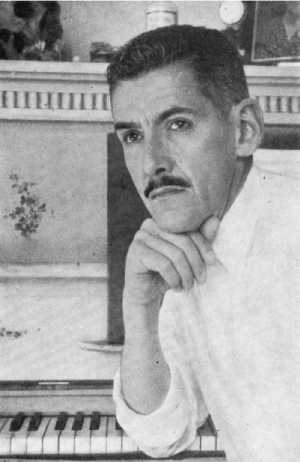
Carlos Guastavino was an Argentine composer, considered one of the foremost composers of his country. His production amounted to over 500 works, most of them songs for piano and voice, many still unpublished. His style was quite conservative, always tonal and lushly romantic. His compositions were clearly influenced by Argentine folk music. His reputation was based almost entirely on his songs, and Guastavino has sometimes been called "the Schubert of the Pampas". Some of his songs, for example Pueblito, mi pueblo, La rosa y el sauce and Se equivocó la paloma, became national favorites. Unlike most other composers, at any time or place, Guastavino earned enough from his royalties and performing rights that he had little need for other income.

Enrique Bátiz Campbell is a Mexican conductor and concert pianist.
Manuel de Falla y Matheu was an Andalusian Spanish composer and pianist. Along with Isaac Albéniz, Francisco Tárrega, and Enrique Granados, he was one of Spain's most important musicians of the first half of the 20th century. He has a claim to being Spain's greatest composer of the 20th century, although the number of pieces he composed was relatively modest.
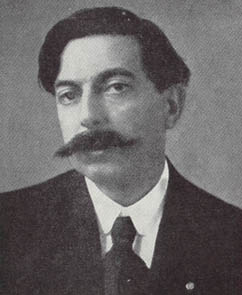
Pantaleón Enrique Joaquín Granados Campiña, commonly known as Enrique Granados in Spanish or Enric Granados in Catalan, was a Spanish composer of classical music, and concert pianist from Catalonia, Spain. His most well-known works include Goyescas, the Spanish Dances, and María del Carmen.

Frederic Mompou Dencausse, or Federico Mompou, was a Spanish composer and pianist.

Gaspar Cassadó i Moreu was a Spanish cellist and composer of the early 20th century.

Aldo Ciccolini was an Italian pianist who became a naturalized French citizen in 1971.
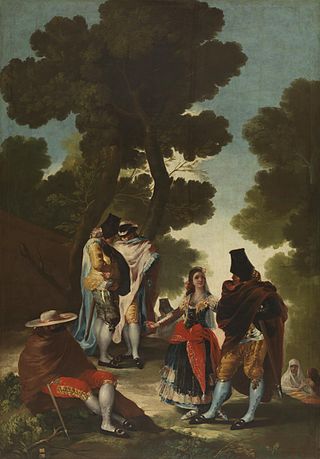
Goyescas, Op. 11, subtitled Los majos enamorados, is a piano suite written in 1911 by Spanish composer Enrique Granados. It was inspired by the work of the Spanish artist Francisco Goya. The piano pieces have not been authoritatively associated with any particular paintings with two exceptions:
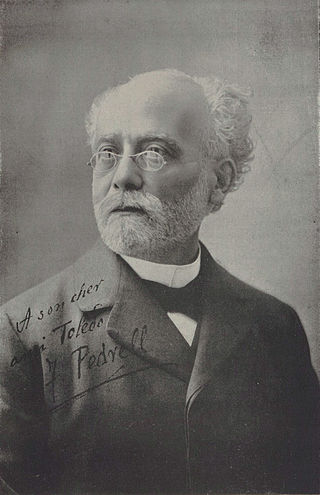
Felip Pedrell Sabaté was a Catalan composer, guitarist and musicologist.

Alicia de Larrocha y de la Calle was a Spanish pianist and composer. She was considered one of the great piano legends of the 20th century. Reuters called her "the greatest Spanish pianist in history", Time "one of the world's most outstanding pianists", and The Guardian "the leading Spanish pianist of her time".

Philippe Gaubert was a French musician who was a distinguished performer on the flute, a respected conductor and a composer, primarily for the flute.
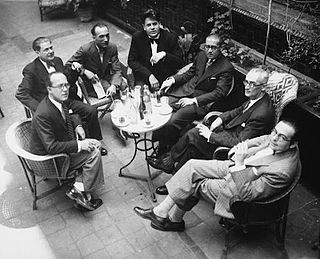
Ricard Lamote de Grignon i Ribas was a Catalan Spanish composer and orchestral conductor.
Frank Marshall King, was a Spanish, Catalan pianist and pedagogue born to parents of English heritage.

María del Carmen is an opera in three acts composed by Enrique Granados to a Spanish libretto by José Feliú i Codina based on his 1896 play of the same name. It was Granados's first operatic success and, although it is largely forgotten today, he considered it to be his best opera. At the end of its initial run in Madrid where it premiered in 1898, Queen Maria Cristina awarded Granados the Charles III Cross in recognition of his work. The opera, sometimes described as a Spanish version of Mascagni's Cavalleria rusticana with a happy ending, is set in a village in the Spanish region of Murcia and involves a love triangle between María (soprano) and her two suitors, the peasant farmer, Pencho (baritone), and his wealthy rival, Javier (tenor).
Artur Pizarro is an internationally-acclaimed Portuguese concert pianist. Designated with the prestigious title of Yamaha Artist, Pizarro won first prize in the 1987 Vianna da Motta International Music Competition and first prize in the 1990 Leeds International Pianoforte Competition. His piano technic/knowledge is linked directly to Liszt himself : his teacher for 17 years, Sequeira Costa, was a great Portuguese pianist who had studied with José Vianna Da Motta, another world famous Portuguese pianist who was one of the last pupils of Liszt.
Miquel Villalba is a Spanish classical pianist.
Enrique Truan (1905–1995) was a Spanish composer. He was born in Gijón, Asturias in 1905 and died on 1 August 1995.

José Antonio Cubiles Ramos was a noted Spanish pianist, conductor and teacher.
Olivier Chauzu is a Franco-Spanish classical pianist.
Mercedes (Mercè) Roldós Freixes was a Spanish composer and music educator who performed professionally as a pianist during her childhood. As an adult, she taught at the Marshall Academy and served as its assistant director.
References
- ↑ "Recent Contributions to Iberian Musical Scholarship in the United States" . Retrieved 24 Mar 2024.
- ↑ "Douglas Riva". www.classicol.com. Archived from the original on 16 September 2003. Retrieved 22 May 2022.